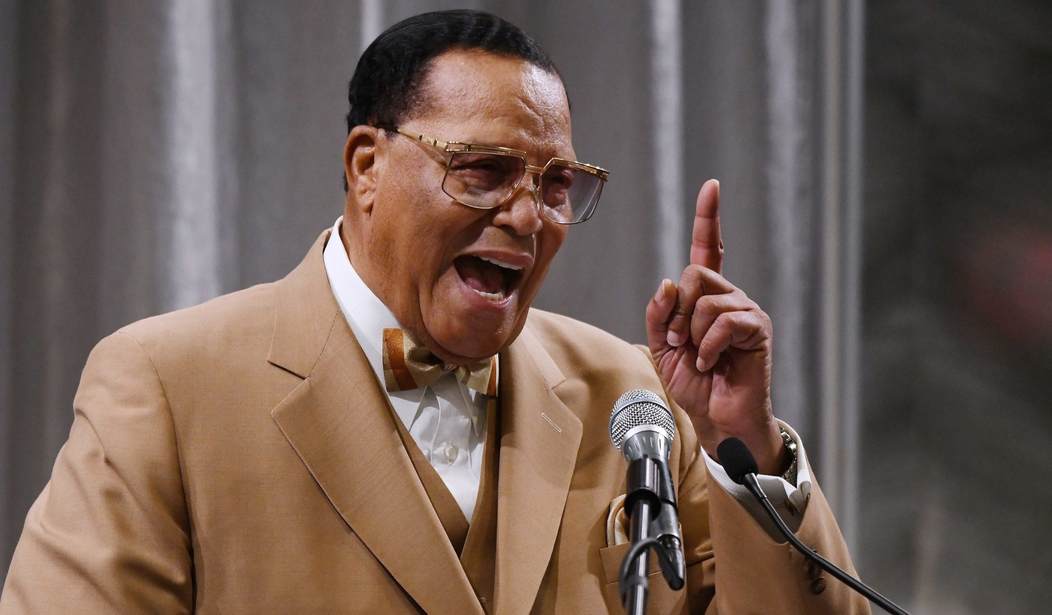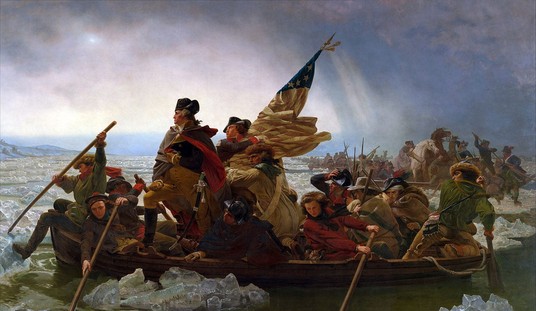On Thursday, Nation of Islam leader Louis Farrakhan called on President Donald Trump to repent for America’s sins and denounced the very idea of American greatness. He addressed Trump, saying the president cannot “Make America Great Again,” as his campaign slogan promised.
“Mr. President, you won’t make America great again, not in our time,” Farrakhan declared Thursday in a speech at the Watergate Hotel in Washington, D.C. “She became great killing Native Americans. She became great enslaving us, bringing us from Africa into America to work the cotton fields. You’re not going to get that opportunity back anymore.”
Farrakhan’s group, the Nation of Islam, was formed in Detroit in 1930 and Farrakhan took control of it in 1977. The group started in order to “teach the downtrodden and defenseless Black people a thorough Knowledge of God and of themselves, and to put them on the road to Self-Independence with a superior culture and higher civilization than they had previously experienced.”
The Nation of Islam leader called on Trump to “repent for all of the evils that America has done to us, to the peoples of the world.”
During the presidential campaign last year, Farrakhan sent mixed signals about Trump. While he did not endorse the candidate, he suggested that he saw his worldview reflected in Trump, including the Republican’s discussion of a “global power structure” that has rigged the economy.
Farrakhan originally supported Barack Obama in 2008, but withdrew his support in 2011, calling Obama “the first Jewish president” following the invasion of Libya.
Despite his attacks on Trump — and on American greatness — Thursday, Farrakhan praised the president for being “transparent” and “real.” While some “wanted him to put on a suit and act dignified, like the thieves and robbers who dress in suits and tell lies,” Trump refused to act that way, Farrakhan noted.
“He’s telling lies all right, and you’re angry because he’s your reflection,” the Nation of Islam leader said. “He’s an anomaly. You can’t make him what you desire him to be so you can say, ‘That’s my president.’ He wasn’t made that way.”
The charge that America’s heritage is irredeemably racist is far from unique to Farrakhan. Ta-Nehisi Coates suggests as much in a new book arguing that President Trump represents an exact rehash of the rise of white supremacy.
While Trump did call for a “ban on all Muslims entering the country” and seemed to equivocate in his condemnations of the Charlottesville white nationalist riots, his championing of American greatness and Western civilization is not racist.
When it comes to Western civilization — the civilization the Nation of Islam was founded to shirk off — it holds universal principles for all people. Furthermore, the Jewish and Greek foundations of the Western heritage belie any claims that it is a “white” patrimony. Greeks and Italians — and Irish for that matter — were not considered “white” until recently, and many white nationalists look upon Jews as a racial enemy.
The ideals at the center of America are similarly race-neutral. While the Constitution did allow for slavery, to the nation’s everlasting shame, there is no indication that the Declaration of Independence does not apply to all people, regardless of race. Even the notorious “three-fifths” clause was actually introduced to restrict the power of slave-owners.
The United States fought a bloody civil war over the issue of slavery, and in his second inaugural address, Abraham Lincoln declared that the war was God’s judgment on both the North and the South for harboring the evil of slavery. While this is America’s “original sin,” the Constitution now enshrines equal rights regardless of race, and the American idea is universal.
The kind of greatness President Trump outlined in his July speech in Warsaw, Poland, has nothing to do with race and everything to do with freedom and human flourishing.
“We write symphonies. We pursue innovation. We celebrate our ancient heroes, embrace our timeless traditions and customs, and always seek to explore and discover brand new frontiers,” Trump declared. “We reward brilliance. We strive for excellence, and cherish inspiring works of art that honor God. We treasure the rule of law and protect the right to free speech and free expression.”
The president noted that Westerners “empower women as pillars of our society and our success. We put faith and family, not government and bureaucracy, at the center of our lives. And we debate everything. We challenge everything. We seek to know everything so that we can better know ourselves.”
Last, but not least, he emphasized the West’s decision to “value the dignity of every human life, protect the rights of every person, and share the hope of every soul to live in freedom. That is who we are. Those are the priceless ties that bind us together as nations, as allies, and as a civilization.”
When Trump praises America’s greatness, this is what he means. He may not be the ideal champion of American values or Western civilization, and his suggestion that the U.S. was truly great in the past has made many minorities skeptical of his commitment to diversity. Even so, Trump is not calling for a return to the evils of oppressing Native Americans or enslaving people on the basis of race.
Further undermining his credibility, Farrakhan has married the Nation of Islam to Scientology, a repressive cult that allegedly forces women to have abortions. Perhaps he is not the best spokesman to call Trump to “repent” for America’s past sins.









Join the conversation as a VIP Member